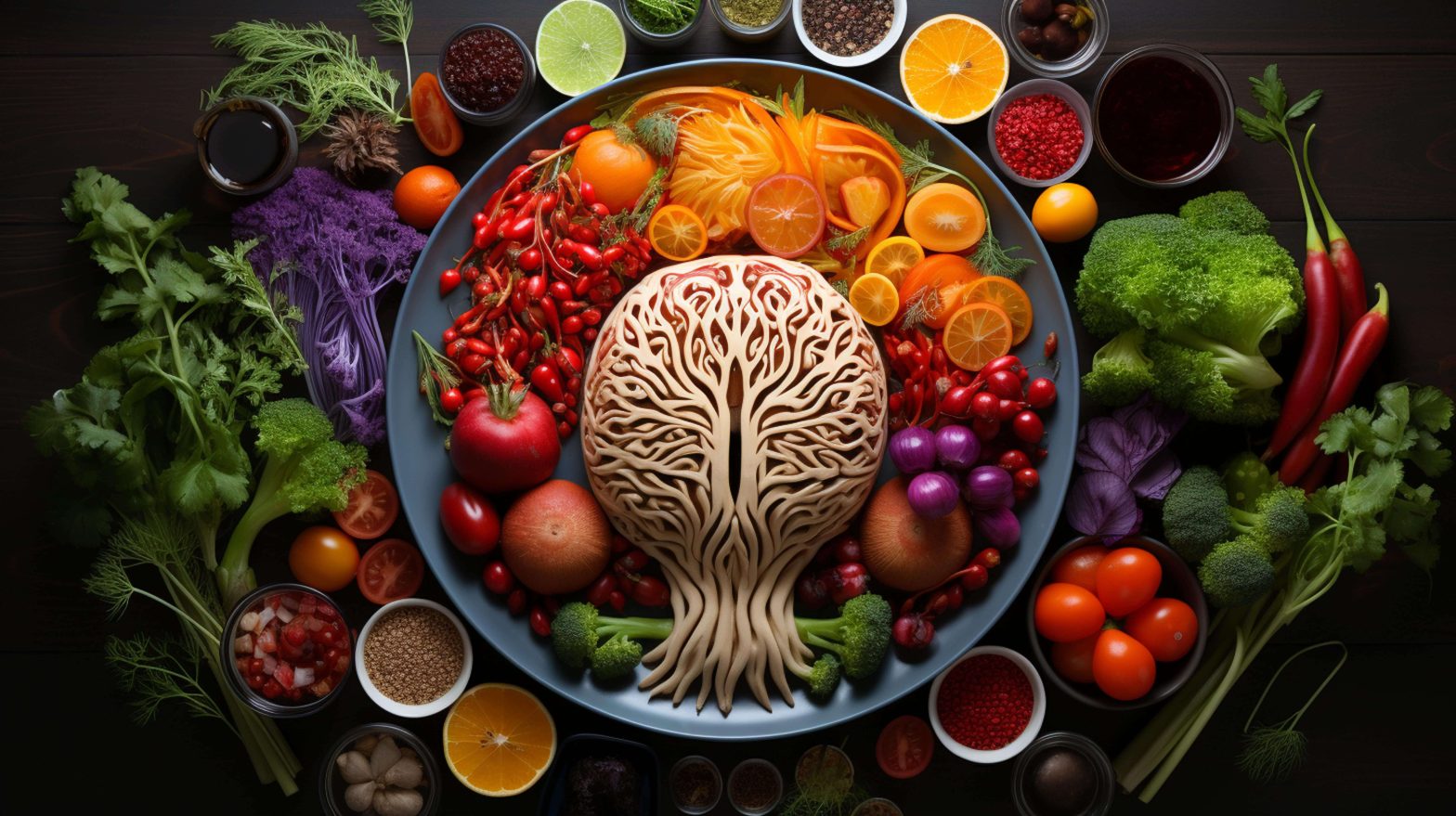Have you ever felt your brain foggy or sluggish? Maybe you can’t quite remember that important detail, or you’re struggling to concentrate. Did you know that what you eat plays a significant role in brain health, affecting everything from memory and focus to mood and overall cognitive function?
Scientists are constantly learning more about the intricate link between nutrition and brain function. Studies have shown that focusing on a diet with a focus on nutrition for the brain can significantly impact focus, memory, and overall cognitive performance.
For example, omega-3 fatty acids in fatty fish have been linked to improved memory and learning (Source: NIH.) Similarly, B vitamins play a crucial role in neurotransmitter production, which is essential for clear thinking and concentration. By understanding the science behind these brain-boosting nutrients, we can make informed choices about what we put on our plates to optimize our mental well-being.
This blog will delve into the science behind how food choices can enhance your brain function, equipping you with the means to nourish your mental well-being and enhance your overall health and wellness. We’ll delve into the nutrients your brain craves, explore the surprising link between your gut and your mind, and provide delicious recipes to get you started. Let’s get started on this by talking about brain foods.
Brain Food: Macronutrients and Micronutrients
Imagine your brain as a high-performance computer. Like any machine, our brains require the right kind of fuel to let them function at their best. This fuel comes in two main forms: macronutrients and micronutrients.
- Macronutrients (carbs, protein, and fat) provide the brain with its main source of energy. A balanced intake is key, with most experts recommending getting around 50-60% of your calories from carbs, 20-30% from protein, and 20-30% from fat. (Source: Harvard Health Publishing)
- Micronutrients (vitamins and minerals) are like the essential vitamins your brain needs to perform all its complex tasks. B vitamins, vitamin D, iron, and zinc are crucial players impacting cognitive function and mood (Source: Springer Link).
The key to using nutrition for the brain effectively lies in a balanced diet rich in a variety of whole foods. Don’t skimp on any one food group; aim for a colourful plate packed with fruits, vegetables, whole grains, lean proteins, and healthy fats.
Now, let’s move on to discuss another important aspect of improving nutrition that can help your brain health- your gut-brain connection. Let’s discuss it!
The Gut-Brain Connection: Your Second Brain
There’s a surprising connection between your gut and your brain, often referred to as the gut-brain axis. Trillions of microbes live in your gut and communicate with your brain through nerves, neurotransmitters, and even the production of special molecules called short-chain fatty acids. (Source: Mind Help). Keeping your gut healthy by feeding it with prebiotics (fiber-rich foods) and probiotics (fermented foods like yogurt and kimchi) can positively impact your brain health and mood.
Now that you understand the science behind brain food, let’s get practical! Here are some superstars to add to your grocery list:
- Fatty Fish: Packed with omega-3 fatty acids, these are essential for brain cell health and memory. Salmon, sardines, and mackerel are all great choices.
- Coffee: This morning’s favourite drink contains caffeine and antioxidants that can enhance alertness and mood.
- Blueberries: These little powerhouses are loaded with flavonoids that can support brain function and memory
- Broccoli: Don’t underestimate this cruciferous vegetable! It’s high in vitamin K and choline, both of which are important for cognitive health.
- Nuts: Almonds, walnuts, and pistachios are all excellent sources of healthy fats and antioxidants that benefit brain health.
- Oranges: Rich in vitamin C, oranges may help protect against cognitive decline.
- Eggs: A great source of choline, a key player in neurotransmitter production for memory and learning.
- Green Tea: L-theanine, an amino acid found in green tea, promotes relaxation and focus, making it a great choice for a midday pick-me-up.
Fuel Your Brain With Nutrition Via Healthy Meal Planning
Eating a balanced diet doesn’t have to be complicated. Here are some tips to incorporate brain-boosting foods into your meals.
- Start Your Day Strong: A breakfast with whole grains, protein, and healthy fats will give your brain sustained energy throughout the morning. Try oatmeal with berries and nuts or eggs with whole-wheat toast and avocado.
- Snack Smart: Ditch the sugary treats and opt for brain-nourishing snacks like veggies with hummus, a handful of nuts and dried fruit, or a piece of dark chocolate.
- Variety is Key: Don’t get stuck in a rut! Include a wide range of colourful fruits and vegetables to ensure you get a full spectrum of brain-healthy nutrients.
Join Our Free Workshop Now!
In conclusion, understanding nutrition’s impact on brain health is essential for optimising cognitive function and overall well-being. This blog explains how we can fuel our brains effectively by focusing on brain-boosting foods rich in macronutrients and micronutrients. Moreover, acknowledging the gut-brain connection underscores the importance of maintaining gut health for optimal brain function. Incorporating brain-healthy foods into meal planning and snacks can promote sustained energy, focus, and mood throughout the day.
The good news for you is that Orane International is a pioneer not only in beauty education but also in the nutrition field. Orane’s academies offer professional nutrition and dietetics courses as well. The best part is that you can gain more in-depth knowledge on how to use nutrition for brain health by joining our free workshop, “Nutrition’s Impact on Brain Health,” on April 9th, 2024, from 10 a.m. to 2 p.m. Enroll now and unlock the secrets to a healthier brain!















